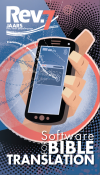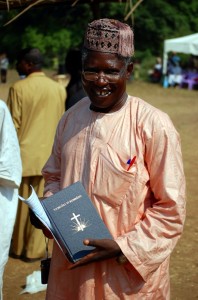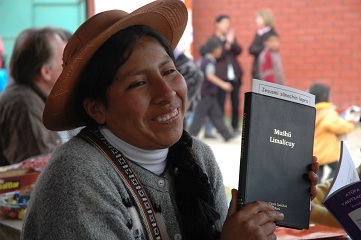 Yes, we hunger and thirst for technology. If only we would have the same hunger and thirst for righteousness and be willing to stay up until 3 AM to get it…
Yes, we hunger and thirst for technology. If only we would have the same hunger and thirst for righteousness and be willing to stay up until 3 AM to get it…
Today was the pre-order date for the new iPhone 5. Starting at midnight Pacific Time (3AM where we are), many people signed-up to receive the lastest and greatest phone from Apple. The initial stock reserved for pre-orders sold out in one hour.
So who stayed up until 3AM (or got up early) to get the new iPhone 5? I will admit that I did. My justifications:
- My last day at Interactive Intelligence is 9/28 and I have to give up my current iPhone 4S.
- My Sprint contract (conveniently) expired on 9/6.
- Sprint service is not good in North Carolina where we will be going.
- I actually write software for iPhones.
With all those justifications, I still need to check my heart. The pull of materialism is so strong. But it is just a phone. How can that hurt, right?
The apostle Peter warns that Satan “prowls around like a roaring lion, looking for someone to devour” (1 Peter 5:8, NLT). He uses riches, consumerism/materialism and worldly prosperity to lure believers away from following Jesus, the true Provider, Protector and Sustainer. We, as believers, need to maintain Job’s attitude towards riches: “The LORD gave me what I had, and the LORD has taken it away. Praise the name of the LORD!” (Job 1:21, NLT).1
How should we as Christians spend our money? Where is the line between tool and toy, between enjoyment and idolatry?
John Piper writes, “Jesus presses us toward a wartime lifestyle that does not value simplicity for simplicity’s sake, but values wartime austerity for what it can produce for the cause of world evangelization… The point is: a $70,000 salary does not have to be accompanied by a $70,000 lifestyle. God is calling us to be conduits of his grace, not cul-de-sacs. Our great danger today is thinking that the conduit should be lined with gold. It shouldn’t. Copper will do. No matter how grateful we are, gold will not make the world think that our God is good: it will make people think that our God is gold. That is no honor to the supremacy of his worth.”1
There is a strong temptation to be distracted. Am I abusing this world? I need to be constantly evaluating the intentions of my heart. Would I be willing to get up at 3AM (or even 5AM) to grow in righteous by prayer and his word?
- Wycliffe article on Consumerism




